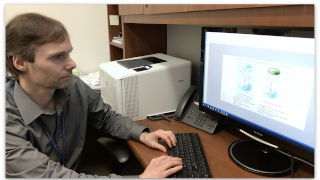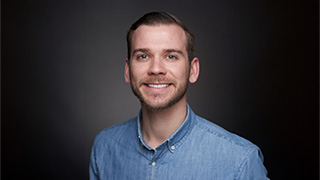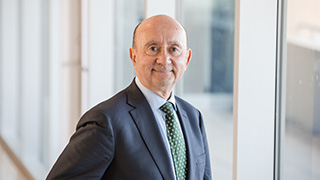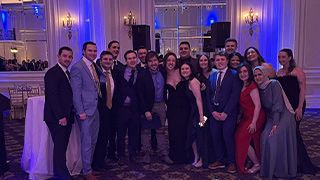CDI Physician-Scientist Talks COVID-19, Harnessing the Power of the Thymus
Wednesday, May 13, 2020

Johannes Zakrzewski, M.D., Ph.D., of the Hackensack Meridian CDI, is also on the faculty at Hackensack Meridian School of Medicine at Seton Hall University.
The COVID-19 pandemic has impacted virtually every aspect of contemporary life, from home life to work life, to the unemployment rate, and the pace of (non-COVID-19) scientific inquiry.
So Johannes Zakrzewski, M.D., Ph.D., an associate member of the Hackensack Meridian Center for Discovery and Innovation (CDI), made two presentations in his long-planned seminar session on May 8 at the Seton Hall Interprofessional Health Sciences campus: one about the viral pandemic, and one about his promising cancer immunotherapy research. The COVID-19 pandemic has impacted virtually every aspect of contemporary life, from home life to work life, to the unemployment rate, and the pace of (non-COVID-19) scientific inquiry.
"I figured we would talk about COVID-19 — since that's what everyone's talking about anyway," said Zakrzewski, also an associate professor of pediatrics at the Hackensack Meridian School of Medicine at Seton Hall University.
"Harnessing the immune system to combat cancer," was part of the Seton Hall Interprofessional Health Sciences IPE Research Seminar Series, sponsored by the Hackensack Meridian School of Medicine at Seton Hall University, the College of Nursing, the School of Health and Medical Sciences, and the Interprofessional Health Sciences Library.
This presentation, due to the ongoing pandemic, was held remotely.
Zakrzewski started with a scientific overview of the latest COVID-19 findings, including some of the genetic detective work showing how the SARS-CoV2 virus spread globally — and how the more aggressive strain circulating on the United States' East Coast has been tracked back to Europe. The physician-scientist also outlined how the virus likely jumped from an animal species, and consequently evolved a spike protein that enhanced its capacity for transmission; that is, the virus has become more easily spread than some of its viral cousins.
The physician-scientist also outlined the value of ongoing serum tests to understand antibodies in survivors' blood; the potential effectiveness of convalescent plasma treatments; and also the difficulties in understanding the true mortality rate, when so much data has yet to be established. In essence, the scientific processes to understand how the pandemic happened, and how it may end in the future, are still underway.
Only after this presentation did Zakrzewski tackle describing his ongoing work, which involves arming the immune system to treat multiple myeloma, lymphoma and other blood cancers, as well as the deficiency of a vital part of the immune system: lymphocytes known as T cells.
Zakrzewski and his CDI laboratory are investigating the efficacy of chimeric antigen receptor, or CAR-T, cells. They are natural immune system cells which are targeted in the laboratory to fight specific tumors. Other researchers have investigated this promise since the turn of the millennium. The big challenge, however, is finding a method for manufacturing the "naïve" CAR-T cells, which can be best targeted against tumor weaknesses, in a number sufficient to fight disease.
The novel part of Zakrzewski's plan is to harness the capabilities of thymus, the primary lymphoid organ in a patient's body, and employ it in fighting the cancer.
By converting the thymus into a "bioreactor" that can produce the genetically modified T cells which can target tumors, the body can continue employing its own ongoing immunotherapy.
The physician-scientist showed some results of these thymus-derived CAR-T cells killing targeted B cells as planned in an in-vivo model showing the promise of the strategy, Zakrewski said.
The IHS IPE Research Seminar Series is slated to continue into the next academic year. View the full schedule of the IPE Research Seminar Series »
Categories: Health and Medicine





